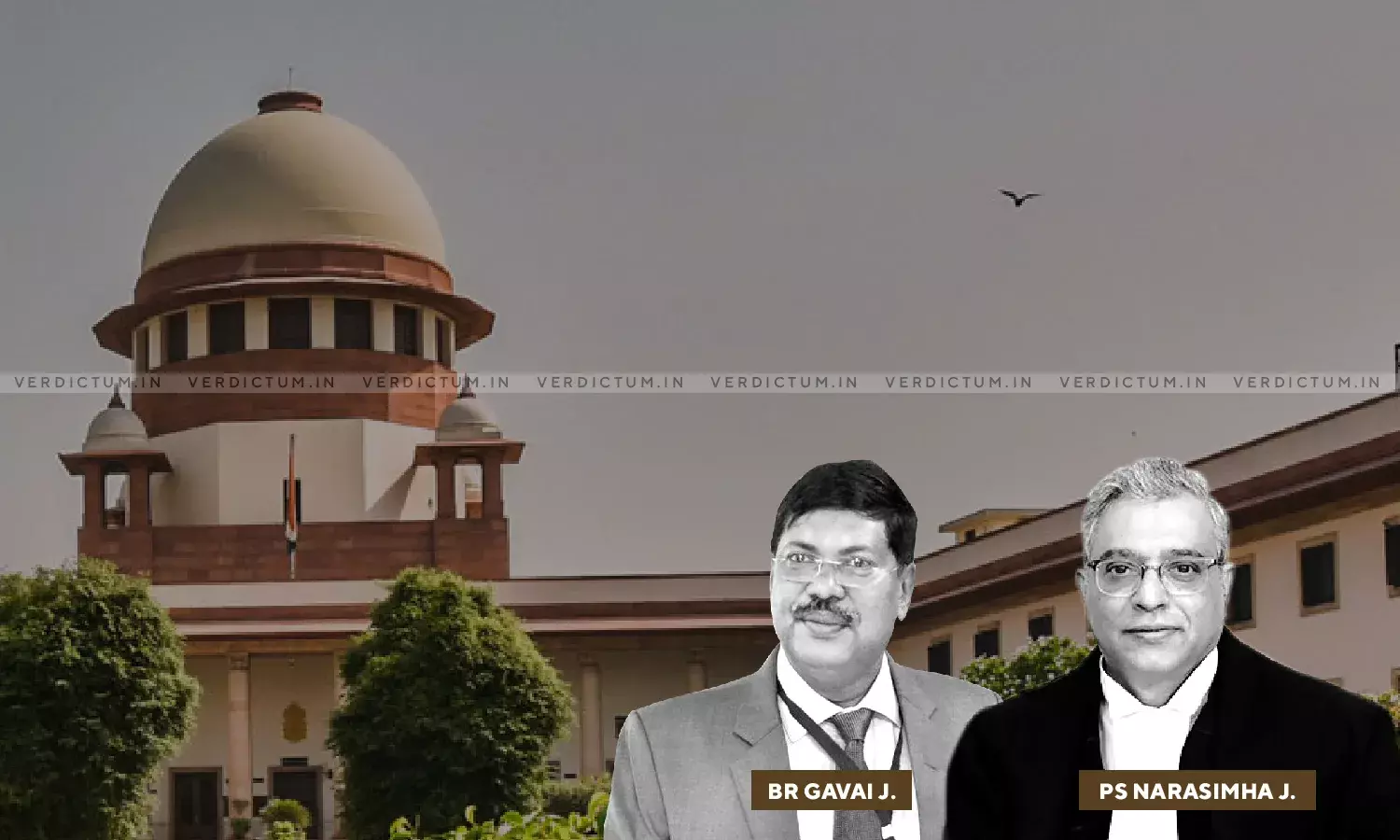Not Possible To Interfere With Finding Of Acquittal Unless Perverse: SC Upholds Acquittal Of Man Accused Of Killing His Wife
Not Possible To Interfere With Finding Of Acquittal Unless Perverse: SC Upholds Acquittal Of Man Accused Of Killing His Wife
The Supreme Court has observed that the scope of interference in an appeal against acquittal is very limited and the finding of acquittal cannot be interfered with unless the view taken by the Court is perverse.
"The scope of interference in an appeal against acquittal is very limited. Unless it is found that the view taken by the Court is impossible or perverse, it is not permissible to interfere with the finding of acquittal.", the Bench of Justice BR Gavai and Justice Pamidighantam Sri Narasimha noted.
The Bench further opined that if two views are possible, it is not permissible to set aside an order of acquittal, merely because the Appellate Court finds the way of conviction to be more probable. The Court held that the interference would be warranted only if the view taken is not possible at all.
The Court was dealing with an appeal challenging the acquittal of a man accused of killing his wife. As per the case of the prosecution the accused had killed his wife with a lathi, dragged her 100 feet away from the house and set her on fire in order to destroy the evidence.
The Trial Court had convicted the respondent–accused for the offence punishable under Section 302 of the Indian Penal Code and sentenced him to life imprisonment and he was also convicted for the offence punishable under Section 201 of the IPC and was sentenced to undergo three years' rigorous imprisonment.
The Rajasthan High Court had reversed the order of conviction and acquitted the accused for the offences mentioned above. Being aggrieved thereby, the state approached Supreme Court.
Advocate Vishal Meghwal appearing for the appellant-state argued that the Trial Court had convicted the respondent-accused upon appreciation of evidence of one Guman Singh, and submitted that the extra-judicial confession made by the respondent–accused before that witness was such, that would inspire confidence in the judicial mind. He further submitted that Hamira Ram who was declared hostile, part of his testimony related to extrajudicial confession was trustworthy and the same corroborated the testimony of Guman Singh.
Advocate Charu Mathur represented the accused-respondent.
The Court noted that the said Hamira Ram had turned hostile. The Court further observed that the High Court had placed reliance on the Judgment of the Supreme Court where it had held that extrajudicial confession was a weak piece of evidence and unless there was some corroboration, the conviction solely on the basis of extrajudicial confession could not be sustained.
In that context, the Supreme Court stated that "The view taken by the High Court cannot be said to be either impossible or perverse meriting our interference."
Accordingly, the appeal against acquittal was dismissed.
Cause Title- State of Rajasthan v. Kistoora Ram
Click here to read/download the Judgment




